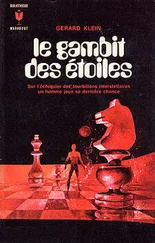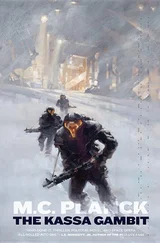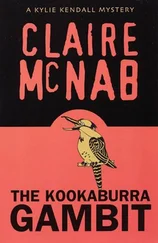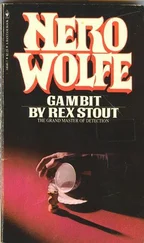Their assigned high hall, when she entered it, was less full than it should have been. The other halls, for the other companies that had not survived, would stand empty. The servitors had arranged the tables to make the place look less vast. Some of them hovered in the air as they made fussy adjustments to the furnishings: the ashhawk with wings outspread, Brightly Burning, bannered across the wall; the calligraphed motto that was found everywhere the Kel went, from every spark a fire ; tapestries woven from the threads of dead soldiers’ uniforms and embroidered with their names and the names and dates of the battlefields that had claimed their lives.
Every soldier rose at her entrance, spoons and chopsticks clinking as they set them down. Cheris paused long enough to return the honor, and smiled with her eyes. Lieutenant Verab was sober-faced as always, but Ankat returned the expression with a sardonic grin. Ready to tell the officers’ table a brand-new Kel joke, no doubt. He had a better repertoire than anyone she’d ever met. Then she headed to her seat at the center of the officers’ table, and indicated that they should sit again.
The communal cup was waiting for her. It was lacquered red and graven with maple leaves, and someone had refilled it nearly to the brim. Verab, who sat at her right, passed her the cup. He looked very tired, and she lifted an eyebrow at him. He shrugged slightly: nothing important. She didn’t challenge the lie. Cheris felt tired herself, knowing the news she was going to have to break to him, and to the rest of her company. Schooling her expression to calm, she took one sip. The water was sweet and cool, yet she felt it ought to be bitter.
She had a bowl of rice, and the communal platters had familiar fare: fish fried in rice flour and egg and leaves of sage, pickled plums, quail eggs with sesame salt. Some fresh fruit had been saved for her. Verab was mindful of her love for tangerines, a sometime luxury; plus he didn’t care for them himself. She looked at the food and thought about all the meals she had shared with these people, the times she had dragged herself out of a battle knowing that soon she would be able to sit down with them and eat the food they ate, and listen to the Kel jokes that she really wasn’t offended by, even though she sometimes pretended to be as a joke in itself, and comfort herself with the voices of those who had made it through. All of that was about to end.
“I have bad news,” Cheris said. “They’re breaking up the company.”
They were staring at her, even Verab, who should have guessed. “Doctrine,” he said. His voice cracked. Verab was fifth-generation Kel. His family would take it hard.
“You may be able to serve again, some of you,” Cheris said, aware of the inadequacy of her words, “but that depends on the magistrates’ assessments. I’m sorry. I don’t have details.”
“Kel luck is always bad,” Lieutenant Ankat said. He was about to make a joke of his own, she could tell, sheer anxiety. She looked at him, hard, and he swallowed whatever it had been.
“It’s duty,” Cheris said. Right now duty seemed arid. “I am not to go with you. They have another use for me.”
A murmur rippled up and down the table, quickly quelled. They knew the euphemisms, too.
They weren’t looking forward to the future. Most of them would lose Kel tradition and formation instinct. They might remember the mottoes and formations, but the mottoes would give them no more comfort, and the formations would no longer have any potency for them.
“Good luck where you’re going then, sir,” Ankat said, and Verab murmured his agreement. He didn’t believe this had just happened. She could tell by the stricken look in his eyes.
“I would hear your names and dates of service,” she said quietly. It would make all of this real, and the ceremony would give them something to hold onto, even if that something wasn’t precisely comfort. “All of you. Acknowledge.”
“Sir,” they said in one voice. Ankat looked down at his hands, then back at her.
It was not the formal roll call. They had no drum, no fire, no flute. She would have included those things if she could. But even the servitors had heard her. They stopped what they were doing and arranged themselves in a listening posture. She nodded at them.
They started with the most junior soldier – Kel Nirrio, now that Dezken was dead – and ascended the ladder of rank. Nobody ate during the recital. Cheris was hungry, but hunger could wait. She didn’t need to commit the names to memory, as she had done that long ago, but she wanted to make sure she remembered what every intent face looked like, what every rough voice sounded like, so she could warm herself by them in the days to come.
She spoke her name last, as was proper. The hall was otherwise silent. And then, breaking the ritual: “Thank you,” she said. “I wish you well.”
For all that she was leaving them, she couldn’t help feeling a guilty twinge of anticipation for the challenge to come; but it would not do to let on.
“Eat, sir,” Ankat said then, and she ate, not too fast and not too slow, making sure to finish with the two tangerines Verab had set aside for her.
CHAPTER THREE

CHERIS HAD HOPED for more specific orders, but no such luck. She slept uneasily and woke in the middle of the night, four hours and sixty-two minutes before she would ordinarily rise. The room was dark, with only a single candlevine glowing.
The Burning Leaf had shuffled itself into a new configuration. More importantly, a message on the terminal alerted her that they had already separated her from her company. She wished she had been awake for it, but they had undoubtedly done it this way on purpose. If anyone had a sense of mercy, her soldiers would be allowed some rest before they were hauled off for an examination by Doctrine, and those needing further medical care would receive it before they, too, went to their fate.
When she paused by her desk, she noticed a new presence: a servitor in the open doorway. It hadn’t knocked, and she didn’t recognize it. “Hello,” Cheris said, looking at it quizzically.
It was a foxform rather than the moth’s more usual spiderforms and birdforms. It had eyes of faceted glass, and they lit up yellow. A Shuos servitor. Of course.
The servitor didn’t answer. Kel servitors never spoke human languages and Shuos servitors rarely did, although Andan and Vidona servitors usually could if they cared to. The foxform skittered in, moving in furtive zigzags. Then it stepped up into the air until it was level with the surface of Cheris’s desk.
The servitor disgorged a roll of cloth from a side compartment. The cloth was closed with a slender chain that Cheris could have scattered with her hands. Instead, murmuring her thanks, she turned the cloth around until she found the catches.
It wasn’t blank fabric. It was a gamecloth sewn with a square grid in lines of variegated silk. The entire boundary glittered with tiny beads of bronze and rich orange. She ran her thumb over the beads, taking pleasure in their pebbled texture.
The most notable thing about the gamecloth was that it was more of a record than a playing surface. Pieces had been embroidered at the intersections of lines, capturing the positions of an incomplete match. Cheris’s eyes went immediately to the web piece in the corner, and she smiled crookedly.
The one time she had played the game had been against a pretty female communications technician she was dating, Shuos Alaia. Cheris remembered Alaia’s wry laugh and stories about growing up in a dysfunctional mining community. They had even had the same taste in dramas (ridiculous melodrama, the more duels the better). Alaia had had light brown eyes and skin half a shade darker, and hands that never stopped moving. A nervous tic in a Shuos was usually a sign of a training incident, but Cheris had known better than to inquire. She should have expected that some higher-ranking Shuos had logged their interaction, though.
Читать дальше













